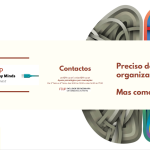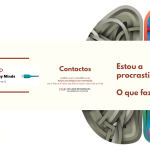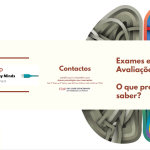
Management and Organization
Studying at university can be very different from what you’ve been used to. If you’ve entered university, it’s likely that at school you performed well and that the strategies you used to study allowed you to get the results you wanted.
In this context, you may have already come across major differences in teaching and assessment methods, the amount of material you have to study per course unit and per semester, and the resources you have at your disposal. You may feel that your abilities aren’t enough to continue doing well here, and that’s not necessarily true!
Faced with these difficulties, you may need to make some changes to your personal management and to the way you organize your time and priorities. The “secret” to a good study is that it suits you, your characteristics and your needs.
Here are some tips on time management and organization. Save the document and refer to it whenever you need to!
Procrastination
We’ve all felt ourselves procrastinating at some point in our lives… No matter how many responsibilities we have at that moment, it seems that anything is more appealing than the task at hand. We feel a nagging guilt that we’re not fulfilling that commitment and yet we’re not able to do anything about it. Sometimes, even though we have put off our efforts and this pressure towards the end of the deadline is bringing great distress, the results end up being positive, which gives us the feeling that the method is effective.
Procrastination can have several explanatory factors, including inadequate stress levels or a lack of motivation or confidence to carry out the task. The important thing is to understand what causes it and, at the same time, try to implement strategies to counteract this tendency.
Here are some practical tips.
You can find other informative resources and videos on this and other topics in our useful links section!
Exams and Assessments
Exams, group or individual work, oral presentations, quizzes, tests… There are many moments of assessment in college and at some point you may feel that you can’t cope.
In fact, assessment times are often the peak of anxiety during the academic experience. The level of demand at university can be quite different from what you’re used to and these situations can trigger physical or psychological reactions in you that you’ve never dealt with before. On the other hand, these moments of evaluation may be something you’ve always struggled with and now you feel they are even more difficult to manage.
It’s important that you look for and identify strategies that suit you and make it easier to live through this phase, both by organizing your time and study, and by adopting self-care behaviours. You can check out some of these strategies here.
If you feel that nothing is working and that it is difficult to control the anxiety and negative feelings associated with it, you should seek professional psychological help. For more information on common symptoms, warning signs, strategies and other tips, check out the Anxiety section of our website.
Dealing with failure
Putting your knowledge and skills to the test and facing assessment sometimes means finding results that don’t correspond to what you had envisioned.
During your academic career you may have to deal with failure and all the reactions it provokes. If your performance turns out to be below the expectations you had set, as well as feeling disappointed, you may begin to doubt your abilities and this can lead to insecurity and nervousness when it comes to the next assessment.
It’s important to understand that failure can be part of the experience of being a student and that it can serve as an opportunity to improve your study methods or adjust your expectations of your own performance.
It’s natural to feel down after receiving a bad grade, but remember that it doesn’t define you and that it can be a good starting point to see and do things differently!
Here are some tips on how to deal with failure – keep them and share them.
Studying at FEUP
It’s always important to remember that studies, assessments and results are just one part of your academic life and the experience of attending higher education.
Make sure you get involved with the academic community, take part in activities and projects that stimulate you and provide well-being, explore the university campus and the city that welcomes you and live new experiences that maybe only this context makes possible!
As well as enriching your professional CV, being involved in different areas fills out your “personal CV”, helping you to create interpersonal relationships, develop more varied skills and build a greater sense of self-efficacy.



